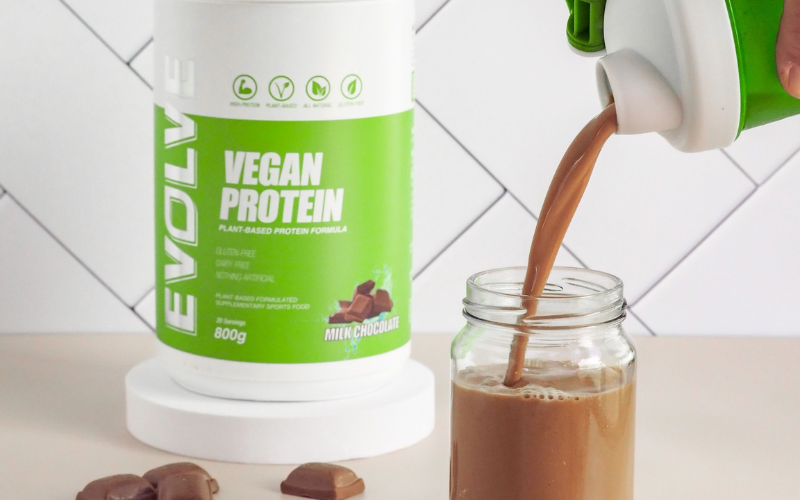In recent years, a growing interest in plant-based diets and protein sources has been observed. With a rise in plant-based protein products and alternatives, individuals are exploring healthier and more sustainable dietary choices. This shift not only reflects a change in dietary preferences but also a broader understanding of the nutritional and environmental impacts associated with food choices.
Key Takeaways
- Vegan proteins, especially sprouted ones, are easily absorbed by the body.
- Plant-based diets are associated with a range of nutritional benefits including a rich source of iron, healthy fats, high fiber content, and essential vitamins, minerals, and antioxidants.
- Adopting a plant-based diet can have a positive impact on gut health and metabolism.
- Environmental advantages of plant-based proteins include reduced greenhouse gas emissions and water conservation.
- Incorporating plant-based proteins in daily diet can be achieved through a variety of sources and innovative meal planning.
Table of Contents
Bioavailability and Absorption
Vegan Protein Absorption
The bioavailability and absorption of vegan proteins are crucial factors determining their nutritional value. Particularly, sprouted vegan proteins are known for their enhanced bioavailability which ensures that the body can easily absorb the nutrients. Sprouting is a process that breaks down some of the starches in the grains and legumes, making it easier for the body to absorb the nutrients.
Importance of Bioavailability
Bioavailability is essential for cell growth and muscle repair. Proteins are fundamental building blocks in the body, and their bioavailability ensures that the body can utilize them effectively for various physiological functions.
Nutritional Benefits
Rich Source of Iron
| Vegan Protein Source | Iron Content (mg per 100g) |
|---|---|
| Lentils | 6.5 |
| Chickpeas | 6.2 |
| Quinoa | 4.6 |
Vegan proteins are often a rich source of iron, a mineral essential for transporting oxygen in the blood and for energy metabolism.
Healthy Fats
Some vegan protein sources also contain healthy fats which are essential for many body functions including the absorption of vitamins.
High Fiber Content
The high fiber content in plant-based proteins contributes to prolonged satiety, aiding in weight management and promoting digestive health.
Essential Vitamins and Minerals
Plant-based proteins also provide a variety of essential vitamins, minerals, and antioxidants which are vital for maintaining good health.
Gut Health and Metabolism
Positive Impact on Gut Microbiome
A plant-based diet rich in various vegan proteins and fibers can have a positive impact on the gut microbiome. The fibers from plant-based foods act as prebiotics, providing nourishment for beneficial gut bacteria which in turn, can enhance digestion and overall gut health.

Potential to Boost Metabolism
Due to the high fiber content, plant-based proteins tend to have a longer digestion time which can potentially boost metabolism and aid in weight management.
Environmental Impact
Reduction in Personal Greenhouse Gas Emissions
Adopting a plant-based diet can significantly reduce personal greenhouse gas emissions. The production of plant-based proteins tends to have a lower environmental footprint as compared to animal-based proteins.
Water Conservation
The production of vegan proteins requires less water compared to the production of animal proteins, thus contributing to water conservation.
Health Comparisons and Concerns
Comparison of Complete Proteins
When it comes to protein quality, it’s essential to consider the amino acid profile. Some plant-based proteins like soy and quinoa are considered complete proteins as they contain all essential amino acids.
Addressing Amino Acid Deficiency
Contrary to common myths, a well-planned vegan diet can provide all the necessary amino acids required by the body.
Vitamin B12 Considerations
However, Vitamin B12 is one nutrient that needs attention in a vegan diet as it’s primarily found in animal products.
Soy and Health
Debunking Myths Around Soy
There are many myths surrounding soy consumption. However, research has shown that soy can be a part of a healthy diet and provide essential proteins and other nutrients.
Current Research on Soy Benefits
Recent studies have indicated that soy consumption can have various health benefits including supporting heart health and bone health.
Plant-Based Protein Powders
Comparison to Whey Powders
Plant-based protein powders have emerged as a viable alternative to traditional whey powders. They offer a lactose-free option with a variety of protein sources.
Recommendations for Best-Tasting Plant-Based Protein Powders
Selecting a tasty plant-based protein powder can sometimes be a challenge given the variety of options available in the market. However, with some research and taste testing, you can find a product that not only meets your nutritional needs but also pleases your palate. Here are some factors to consider while selecting a plant-based protein powder:
- Flavor: Look for flavors that you naturally enjoy. Common flavors include chocolate, vanilla, and berry. Some brands offer unique flavors like coffee, mocha, or even unflavored options for versatility.
- Sweeteners: Check the ingredient list for the type of sweeteners used. Some people prefer natural sweeteners like stevia or monk fruit, while others might prefer conventional sweeteners.
- Texture: The texture of the protein powder is crucial for enjoyment. Some plant-based protein powders can be gritty. Look for brands that are known for their smooth texture.
- Brand Reputation: Brands with a good reputation are likely to have invested in the taste and texture of their products. Look for reviews and ratings to gauge customer satisfaction.
- Sample Packs: If possible, purchase sample packs of different flavors and brands to conduct your taste test before committing to a full-sized product.
By considering the above factors and maybe even consulting with a nutritionist, you can find a plant-based protein powder that is not only nutritious but also enjoyable.
Incorporating Vegan Proteins in Diet
Transitioning to a plant-based diet or merely incorporating more vegan proteins can be a simple and enjoyable process with a bit of planning and creativity.
Recommendations for Best Plant-Based Protein Sources
Here are some highly nutritious sources of vegan proteins:
- Legumes: Lentils, chickpeas, black beans, and other legumes are excellent sources of protein.
- Nuts and Seeds: Almonds, walnuts, chia seeds, and flaxseeds not only provide protein but also essential fatty acids.
- Whole Grains: Quinoa, buckwheat, and whole grain breads and cereals can contribute to your daily protein intake.
- Soy Products: Tofu, tempeh, and edamame are all excellent sources of protein.
- Protein-Rich Vegetables: Broccoli, spinach, and asparagus contain a good amount of protein per serving.

Recipe Ideas and Meal Planning with Vegan Proteins
- Buddha Bowls: Incorporate a variety of vegan protein sources along with a mix of colorful vegetables and whole grains.
- Smoothies: Blend plant-based protein powder with fruits, vegetables, and nut milk for a nutritious and satisfying smoothie.
- Stir-fries: Toss tofu or tempeh with a variety of vegetables and serve over quinoa or brown rice.
Being mindful of protein intake and including a variety of sources can help ensure a balanced and nutritious diet.
Frequently Asked Questions
- What are the best sources of vegan protein?
Legumes, nuts, seeds, whole grains, soy products, and certain vegetables are all excellent sources of vegan protein.
- Is it hard to get enough protein on a vegan diet?
With a well-planned diet, getting enough protein on a vegan diet is achievable. Incorporating a variety of protein sources can help meet your protein needs.
- Do I need to take protein supplements on a vegan diet?
Depending on individual needs and dietary restrictions, some people might find protein supplements helpful. However, it’s possible to meet protein needs through whole foods.
- Are plant-based protein powders effective?
Yes, plant-based protein powders can be an effective way to supplement your protein intake, especially if you have higher protein needs or lead an active lifestyle.



